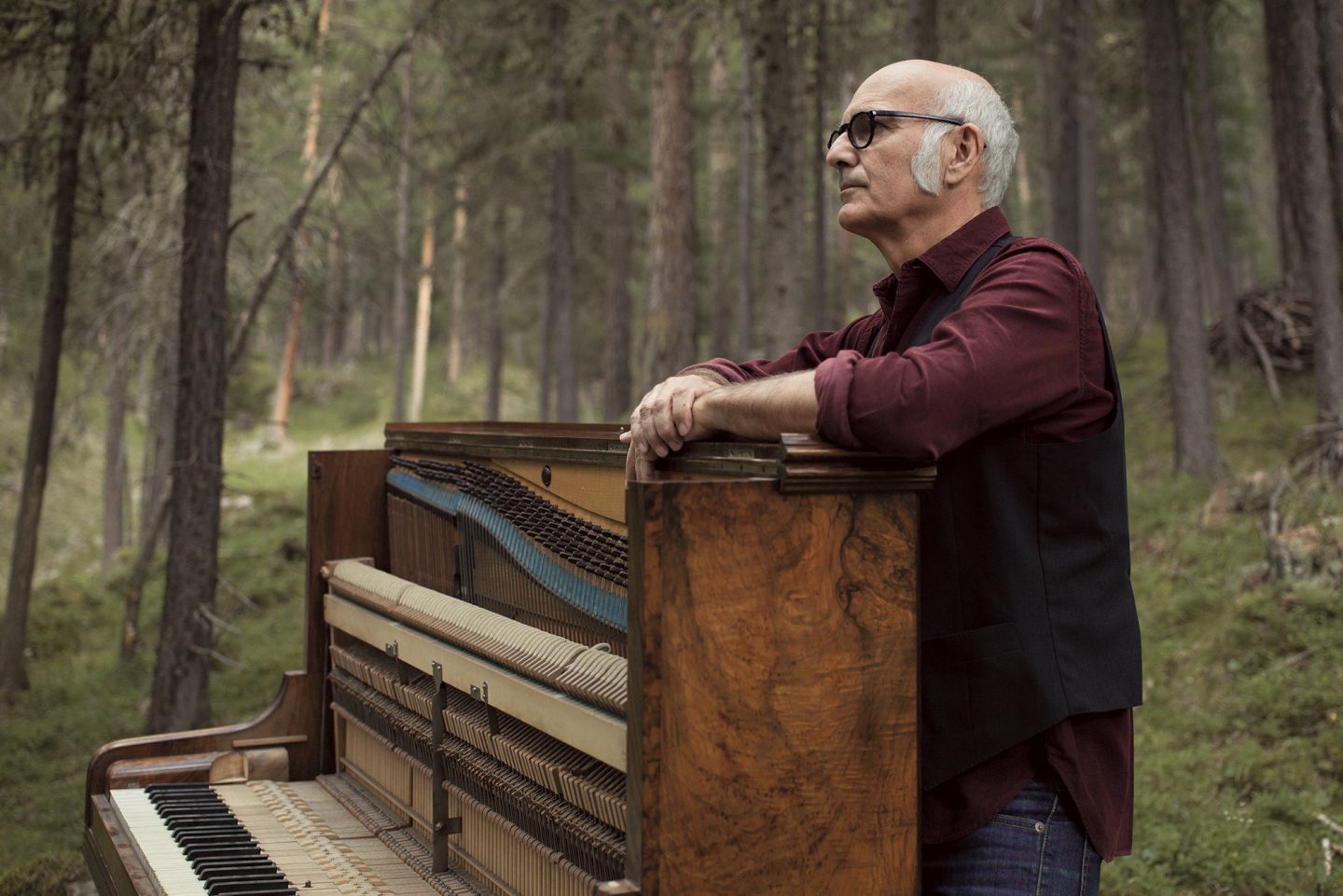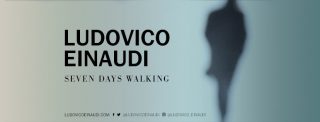Ludovico Einaudi's
itinerary of the mind

A series of circuitous walks in the rugged mountains of northern Italy provided the inspiration for Ludovico Einaudi’s latest release.
It was high in the snow-clad mountains of the Italian Alps, near his native Turin, that composer Ludovico Einaudi spent time by himself at the beginning of 2018. There in the thrall of nature he went on daily walks, trekking out in a different direction but always coming back a full circle. An idea occurred to him that the new work he was composing could take the form of a circle that paralleled his daily wanderings. This is how Seven Days Walking was born. A collection of seven CDs that were released over as many months in 2019, it is gigantic in scale but at the same time perhaps Einaudi’s most distilled and intricate work. Strands of piano, violin and cello move hypnotically in waves, themes appearing and reappearing in varied guises, together forming a seamless chronicle of one week spent in the mountains. Concentrated and meditative in quality, it really plays on the mind.
Track titles suggest various pictorial depictions of nature – for instance Low Mist, Cold Wind, Fox Tracks and Golden Butterflies. But Einaudi was not aiming for anything as literal as that. Rather, the visual signposts provided in the titles of Seven Days Walking point to essences that he was seeking in purely musical terms – inner states of mind and mood.
“The music doesn’t describe anything,” he says from his home in Milan. “It’s more like an itinerary of the mind. Each title is a metaphor of what happens musically, but there is not a real connection with the landscape.” Under winter’s blanket of snow, little more than the bare outlines of rocks and trees may be visible. In like manner, Seven Days Walking is built on a number of bare themes which generate numerous variations, in turn creating the fabric of musical thought.
“The winter is, in a way, creating the mood. Winter erases some of the colours and some of the shapes, so all that remains are nature’s essentials. When you see a tree in the snow, it’s like a painted tree. It’s like a drawing made with a pen and ink,” explains Einaudi.
“So, in a way, musically I created something that is very essential, because I used maybe the most essential group, that is, the trio with piano, violin and cello. Maybe it is the most essential orchestra that you can have in the world, because it is a combination of instruments that is very rich, powerful but also very light and that can change gear very easily. You can change speed and dynamic very fast and it doesn’t need the time that you need with an orchestra.”
Einaudi says that his love for walking began as a child when his father took him by foot into the mountains, the countryside around Turin, and through nearby towns. He still usually goes for hour-long walks every morning. There is something about the rhythm of walking, he says, and the way it allows the mind to enter into dialogue with itself that inspired this new work. “Walking is a very nice way of thinking and of exploring one’s ideas. It clarifies the mind. In Seven Days Walking my idea at the beginning was quite unclear. But what came apparent was that I wanted to create a circle of music. I started to reflect that in my walks, what I was trying to achieve and think about musically was quite similar. So instead of dividing it all up into separate songs, I wanted to create a kind of suite in which all the pieces would be interrelated and work together as an itinerary.”
Each piece began as an improvisation. This is Einaudi’s usual modus operandi when he composes at the piano. He listens to where sounds take him and later selects the best ideas. His breakthrough in Seven Days Walking was to discover a way of keeping all his sketches within a cyclic form of theme and variations.
“You start from a harmonic-melodic structure that is there. But every day there is a different way of looking at the same idea. It’s very beautiful to play and improvise around, so the approach is quite open and you keep a sort of magic of the moment. But in this project I wanted to involve all this material together, and so I was happy to find this solution,” he says. In his Adelaide concert, Einaudi will be joined by two favourite artists with whom he has worked closely over the last decade, violinist Federico Mecozzi and cellist Redi Hasa. Playing with these fellow musicians, he says, opened many new doors.
“I was touring together with a bigger ensemble, and I started to create a trio with Federico and Hasa, and I felt I could develop more music with this combination of instruments. It has so many possibilities of different layers and dynamics.
“There are moments when the trio can create a very deep and big sound. There are other moments when you could be completely surprised by what you hear. It’s very beautiful for me to play with these musicians because there’s an Incredible interaction with them. During a concert, it makes for one body that is constantly changing in energy but moving together like a single living experience.”
Einaudi is keen to point out that Seven Days Walking makes no attempt to emulate the works of Haydn, Beethoven or Brahms, despite it using the same piano trio medium that these composers employed in many of their chamber works. He has just happened upon the same medium for his own artistic purposes – which uniquely combine classical, ambient, pop and jazz sensibilities.
“I understand why it has been used so much in the past with classical composers. But in deciding this I have to say I never thought of comparing my work to Beethoven or Brahms. I’ve been involved with electric instruments in the past, but at the end when I play an acoustic piano in a beautiful auditorium with a great sound, there is something different that I can achieve.
“The same also is the case when I play with the trio. The space becomes alive with excitement. So even if I like electric instruments, there is something about the beauty and the complexity of an acoustic sound that for me is very haunting.”
